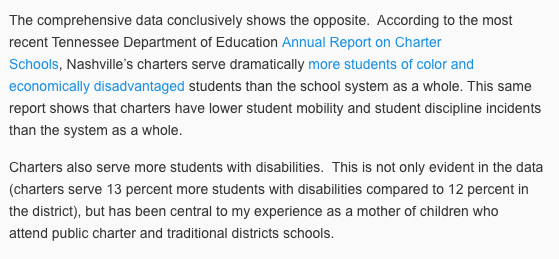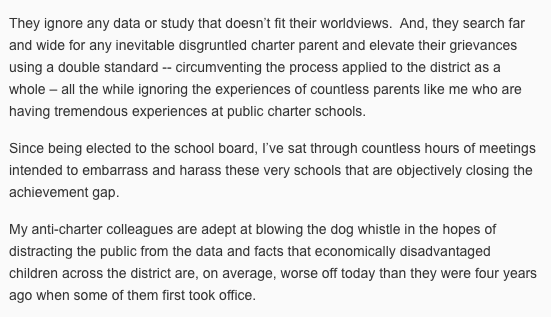MNPS School Board Member Amy Frogge today announced she will be running for re-election from her District 9 School Board seat.
Here’s the press release:
Amy Frogge, School Board Representative for District 9, today announced her campaign for re-election to the Metro Nashville School Board. First elected in 2012, Frogge represents the greater Bellevue area, Sylvan Park, Charlotte Park, West Meade, and Hillwood.
“Through all our successes and challenges, it’s been an honor
representing our district,” Frogge said. “Standing up for our schools is
demanding, but the tide is turning away from reckless experimentation
and toward implementing strategies that have been proven to help our
children learn and grow.”
Frogge has been an outspoken proponent of whole child education, early childhood intervention, and increased exposure to physical activity and the arts. At the same time, she has vehemently opposed excessive standardized testing; efforts to diminish our teachers’ ability to be effective; and educationally and fiscally dangerous tactics pushed by out-of-state special interest groups.
During her tenure on the School Board, Frogge has succeeded in
guaranteeing all students in pre-K through sixth grade have recess
daily, and she has worked with other board members and administrative leaders to decrease standardized testing. She has also helped ensure that every middle school child receives instruction in foreign language, supported expansion of MNPS’s model pre-K program, and advocated for adequate and equitable school funding.
In addition, Frogge has been instrumental in efforts to update the aging Hillwood High School and increase capacity at elementary schools and middle schools across District 9. Money has been allocated to pay for architectural plans for a new high school, and plans call for
renovations to various schools as well as a new elementary school in the Bellevue area.
Frogge was named a “Hero of Public Education” by former U.S. Assistant Secretary of Education Diane Ravitch, Best Public School Defender by the Nashville Scene, and School Board Member of the Year by the national blog Schools Matter. She also received the Distinguished Service to Our Community honor from Delta Kappa Gamma, a teacher organization, and the Robert Chandler Ambassador Award from the Nashville Adult Literacy Council.
“With a new director of schools to be chosen soon, Nashville has a
unique opportunity to make our school system the best urban district in the nation,” Frogge noted. “With a singular focus on serving our
children, we can do great things for our city’s future.”
Frogge is backed by an impressive coalition of civic leaders, teachers,
involved parents, and community members from across the political
spectrum. (See list attached.) Her campaign kickoff is scheduled for
Monday, March 28 at 5:30 p.m. at Thistle Stop Café, 5128 Charlotte Pike.
To contribute to Amy’s campaign, visit https://amyfrogge.com. A complete website is in the works.
For more on education politics and policy in Tennessee, follow @TNEdReport


